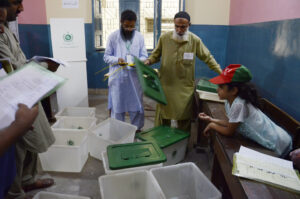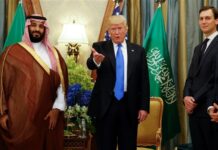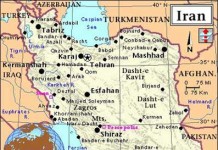
By Arif Ansar
Context
Since the removal of Imran Khan’s government in April 2022 through a no confidence vote, Pakistan’s interim government finally held the election of the 16th National Parliament on February 8th. This was significantly past the constitutional requirement to conduct balloting three months after the government had been dissolved. According to one estimate, nearly 60 million voters participated to elect 266 representatives for the National Parliament and 749 representatives for the four provincial assemblies.
However, the election results are widely seen to be rigged, raising doubts about the legitimacy of the whole process. This has further exacerbated political polarization, as the events before and after the elections appear to be particularly designed for keeping Imran Khan and his party Pakistan Tehreek-e-Insaf (PTI) out of power. The circumstances align well with what is informally known as the London Plan.
The controversial nature of Pakistan’s recent elections has also raised international concerns, particularly from the US, UK, and European Union, prompting calls for investigations into reported irregularities. In the US alone, bipartisan lawmakers, including Democrats and Republicans, have urged President Joe Biden not to recognize Pakistan’s election results until allegations of irregularities are thoroughly investigated.
Though Pakistan’s government has defended the conduct of elections as fair and free and downplayed the concerns of the international community.
The Evolving Political Landscape
PTI
According to reports, the PTI-backed independents secured 93 seats. However, PTI claims victory in over 180 seats, alleging that the total vote counts were tampered with by the Election Commission. This has prevented it from attaining a simple majority and forming the government. Challenging the elections results, PTI has resorted to legal action against the alleged rigging, flooding Pakistan’s courts with petitions seeking judicial intervention as a last resort.
As political maneuvering intensifies in the quest for power, army chief Gen. Munir has urged politicians to form a unified government, stressing that the nation needs “stable hands and a healing touch to move on from the politics of anarchy and polarization.” In response to the army chief’s remarks, PTI leadership has emphasized the release of political prisoners, including Imran Khan, and the acceptance of its mandate to rule as crucial steps towards national reconciliation.
PTI leader Imran Khan has signaled a willingness to mend relations with the military establishment, asserting no ill-will towards any party while cautioning against allowing Nawaz Sharif to lead another coalition government. He has announced plans to form governments in the provinces of KPK and Punjab, as well as at the federal level, having secured a lead in the elections.
PML-N and PPP
In contrast, the Pakistan Muslim League-Nawaz (PML-N) and the Pakistan People’s Party (PPP), with 75 and 54 seats respectively, has chosen to accept the election results. Despite engaging in heated exchanges and running vengeful political campaigns against each other, both agree on the urgent need to move on, claiming that reconciliation is necessary to address the current political instability.
After much political wrangling and theatrics, PML-N and PPP announced forming a united coalition government on February 20, akin to their earlier Pakistan Democratic Movement (PDM) alliance government. However, their reluctance to compromise on key political demands has complicated the durability of such an alliance. Moreover, it’s not clear how they can formulate the government while the results of so many seats are controversial.
Future Government
According to the results that are known, not a single political party secured the simple majority of 169 seats required to form a government, making the formation of a coalition government inevitable.
Much depends on the actions of the PTI-backed independents. The process of wooing independents by the PML-N and PPP is underway, with at least four already expressing interest in joining these parties. The challenge for the PTI is twofold: to reclaim its lost mandate and to safeguard its candidates from shifting allegiances.
Should the PML-N form the government, as it did on February 20, the PTI has threatened to initiate country-wide agitation, sparking fears of a recurrence of the riots witnessed on May 9th last year. At the same time, PTI also appear to be settling in to take on the strong opposition role. Meanwhile, PTI has announced Alliance with Islamic Parties such as Sunni Ittehad Council (SIC) and Muslim Wahdate-i-Muslimeen (MWM).
Dealing with Challenges
As PML-N and PPP announced an agreement to form the government – with Shahbaz Sharif nominated for the Prime Minister and Asif Ali Zardari for the President, it’s not clear how they plan to address the formidable economic, security, and political challenges. Pakistan will soon have to approach the IMF to enter in to a new program and manage the $25-$30 billion in annual external debt, which will require making a number of unpopular decisions. One thing is clear, without political stability there can be little headway on the economic front. Dismal economic prospects are sure to further polarize society, escalating ethnic fissures and finger pointing.
None of the political parties have provided a clear roadmap on how they will tackle the serious foreign policy issues. The nation is entangled in an acute great power rivalry in which China and Russia stand as strategic partners at one end of the pole, while US, Europe and India occupy the other pole. In this, the Gulf nation, which are the major financial backers of the last resort for Pakistan, are also swaying between the Great Powers.
Two of Pakistan’s neighbors Iran and archenemy India are not only involved in the Middle East but are players in the regional proxy war, which involves Afghanistan. This led to the recent unprecedented tit for tat strikes Iran and Pakistan launched at each other. This dynamics could easily pull in Pakistan to the intricate non-state actors playhouse of the Middle East.
The October 7 Hamas attack and the subsequent Israeli operation in Gaza has further complicated the international environment. Israeli offensive has brought larger scale human loss with close to 30,000 Palestinians dead, and destruction of Gaza. Any future ceasefire will be accompanied by rebuilding phase – likely to be led by Qatar, Saudi Arabia, and UAE. On the other hand, the Ukraine conflict has consumed quite a bit of the European and American financial bandwidth – and this will have a direct impact on what kind of attention and assistance may be available for others.
As the election cycles heat up in the US, there are indications that what transpired in Pakistan could become a hot topic between the Democrats and Republicans, further eroding credence for the local set-up there.
Policy Implications
The domestic turmoil in Pakistan is directly connected to the great power rivalry presently playing out. The election results indicate the gradual shift in the societal balance in Pakistan towards the nationalist and conservative forces. As noted by PoliTact in 2014, the organic political alliance that would emerge from the changing ecosystem is between the nationalists and the conservatives of different colors – an outcome not seen favorably in the West.
Ironically, the campaign against extremism has played a significant role in altering the traditional societal balance. It resulted in the shrinking space for the liberals in the Islamic world, and the steady rise of the nationalists and conservatives. The nationalists and conservatives have become increasingly vocal on the supremacy of state sovereignty and noninterference of external players in other countries, a cause championed by China and Russia as well.
This poses serious implications; Western allies cannot hold on to power long while being oblivious to the popular feelings and worsening economic prospects. Their interests, and those of the West, are served better by accommodating the change in the societal balance as opposed to holding on to what is archaic and the customary.
PoliTact’s South Asia Fellow Naad-e-Ali Sulehria contributed to this article.



